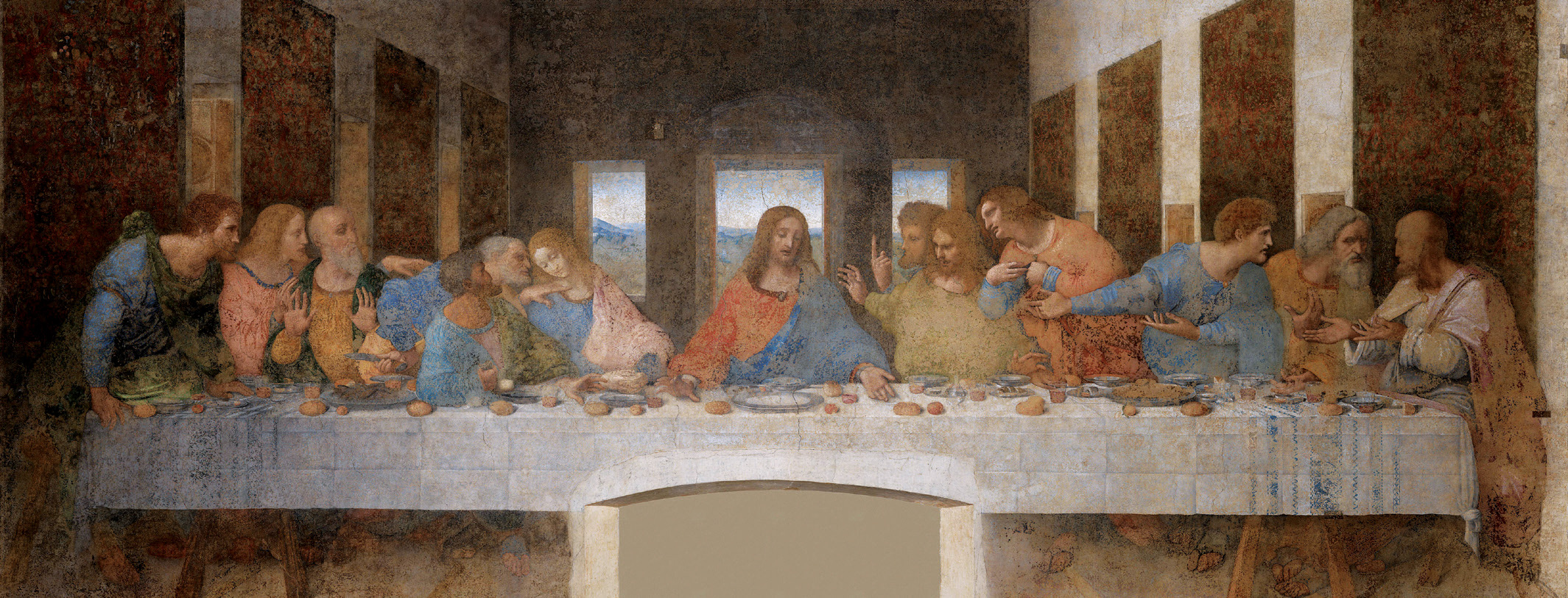From the very beginning, God revealed His desire to be united with us in a deep and personal friendship. When God created our first parents they were united with Him through His gift of grace. When they sinned and broke this unity, God promised a redeemer who would come to restore this lost grace, reunite humanity to Himself and open the gates of heaven.
The Eucharist is prefigured in the Book of Genesis when Melchizedek, a priest of God Most High, brought out a sacrificial offering of bread and wine and blessed Abram (later known as Abraham) after he returned from a victorious battle. (cf Gen. 14:18-20) The Book of Exodus recounts how God told the Israelites, on the night of the first Passover, that they would be saved from slavery if they sacrificed a lamb, ate it with unleavened bread and used the blood of the lamb to mark their doorposts. (cf Ex. 12:1-14) Later, when the Israelites had escaped slavery in Egypt and were wandering in the desert, they grumbled against Moses and Aaron due to the lack of food. In return, God gave them, each day, bread from heaven, which they called manna, that sustained them for their 40-year journey in the wilderness. (cf Ex. 16:4-21) These early accounts show how the natural elements of bread and wine are used as sacred elements for nourishment and celebration. These are forerunners for the nourishment par excellence of the holy Eucharist.
God kept His promise to reunite us with Himself by becoming man in the person of Jesus Christ. When Jesus gathered the apostles together for Passover, the night before He died, celebrating the sacred meal that recalled the deliverance of the Jewish people from slavery in Egypt by the blood of the sacrificed lamb, He revealed His Divine plan. This was now the new Passover (The Last Supper) in which Jesus, the Lamb of God, would shed His Blood for a new kind of deliverance—providing the means for us to “pass over” from spiritual slavery to a new life of freedom in Christ and ultimately eternal life in Heaven. Jesus changed the bread and wine into His Body and Blood, instituting the Holy Eucharist—the “new manna”—which feeds us supernaturally and unites us to God through Christ.
Jesus said “I am the Bread of Life. Your fathers ate manna in the desert and they died; but this is the bread which comes down from Heaven, so that a person may eat it and not die. I am the living bread … Whoever eats this bread will live forever.” (Jn 6:48-51a)
Today, the sacrifice that Jesus made of Himself on the cross is made present (“re-presented”) at Mass. During Mass, we receive Jesus’ Body, Blood, Soul and Divinity into our own body and soul and are once again united with Him in a deep and intimate bond. We should desire to receive Him sincerely and thank Him for the total gift of Himself.To deepen your understanding of the Eucharist in Scripture, join Mark Hart, the renowned “Bible Geek,” on Monday, August 21st from 5:30 p.m. to 8 p.m. Mark presents in a compelling way, making the Scriptures come alive. Register for this virtual Conference at diolc.org/witness. Cost is $10 per person. Join with others at your parish or watch at home. Don’t miss it!
Ann Lankford
Director for Catechesis and Evangelization
Published in the July/August 2023 issue of Catholic Life Magazine

